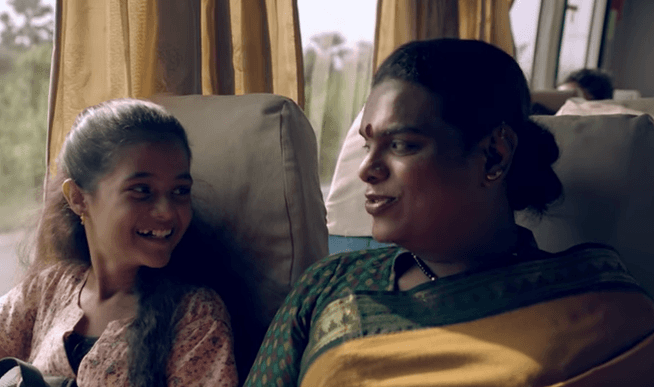
In a country as diverse as India, one would think that showcasing a human rights issue could land a company in a social media minefield. But Vicks scored praise for its touching story of a transgender mother and the child she raised as her own.
One month after it was posted on YouTube, the story has well over 9 million views – and, overall, garnered an enthusiastic reception worldwide.
https://www.youtube.com/watch?v=7zeeVEKaDLM
Companies are increasingly wading into social issues while promoting their products, or as they often infer, seeking to raise awareness of an issue keen on their stakeholders’ minds. Not everyone is a fan of what is sometimes called “sadvertising,” but the evidence suggests that it can work – either by gaining consumers’ trust or landing the company a prominent spot in the newswires. Occasionally, the fallout can be a public disaster: Witness the scorn heaped on Pepsi's faux protest video starring Kendall Jenner, which PepsiCo pulled from its own YouTube channel.
Other campaigns have seen more mixed reviews, such as Starbucks’ foray into a discussion of race relations during the height of the Black Lives Matter movement two years ago. Honey Maid's parent company, Mondelez, says its definition of families is both wholesome and inclusive, as demonstrated by past Honey Maid graham cracker advertising campaigns portraying families of same-sex partners.
But for Vicks to produce this tribute, which is 3.5 minutes long, is a bold statement about transgender rights. In the video, a young girl, Gayatri, tells the story of how she lost her mother at a young age and never knew her father. She was then raised by Gauri Sawant, who was born a boy, then declared that she was a woman during her teenage years. The story of their relationship unfolds as any mum-daughter story would, until the end, when Gayatri asks:
"In our civics text books, we read that everyone is entitled to the same basic rights. Then why is my mom denied them? This is why I'm not going to be a doctor, but a lawyer. For my mom."
As NPR noted, the story is true, and the two main characters play themselves in the video. But a few details are left out. NPR reported that Gayatri’s mother was a sex worker who died of AIDS when her only child was 6 years old; it was then that Gauri, then 27, took the child under her wing and raised her as her own. But in an interview with India Today, Gauri claimed she adopted the child after her parents made it clear they were going to sell their daughter.
Not everyone has been enthusiastic over the video. One Indian blogger asked whether Vicks and its parent company, Procter and Gamble (P&G), which by some accounts is anywhere from the third to ninth largest consumer packaged goods company in India, is actually sincere about their concerns for transgender people or whether this was exploitation for the sake of branding. But across social media, including on YouTube, the feedback was largely positive. “Made me cry” is a common refrain.
Full acceptance of transgender people, and the LGBT community in general across India, still faces a long road ahead. Three years ago, the country’s supreme court issued a landmark ruling declaring that all individuals -- regardless of their sexual preference, gender identity, or even if they declared themselves as “third” or “no” gender at all -- are entitled to full legal recognition. Earlier this year, the first school for transgender students opened in the southern state of Kerala; the school’s founders, however, insisted in a Deutsche Welle profile that social and legal discrimination against transgender citizens is still the norm.
Efforts like those by P&G may be only a pebble making waves in a massive pond of discrimination and scorn heaped on the LGBT community. But at a bare minimum, these videos produced by trusted brands succeed in raising awareness and help to inspire debate; not showing these people at all only makes these citizens feel as if they should be in the closet. Those closet doors, however, are being busted down worldwide, and in the end these changes are a net positive for everyone in society.
Image credit: Vicks India (YouTube)

Leon Kaye has written for 3p since 2010 and become executive editor in 2018. His previous work includes writing for the Guardian as well as other online and print publications. In addition, he's worked in sales executive roles within technology and financial research companies, as well as for a public relations firm, for which he consulted with one of the globe’s leading sustainability initiatives. Currently living in Central California, he’s traveled to 70-plus countries and has lived and worked in South Korea, the United Arab Emirates and Uruguay.
Leon’s an alum of Fresno State, the University of Maryland, Baltimore County and the University of Southern California's Marshall Business School. He enjoys traveling abroad as well as exploring California’s Central Coast and the Sierra Nevadas.














